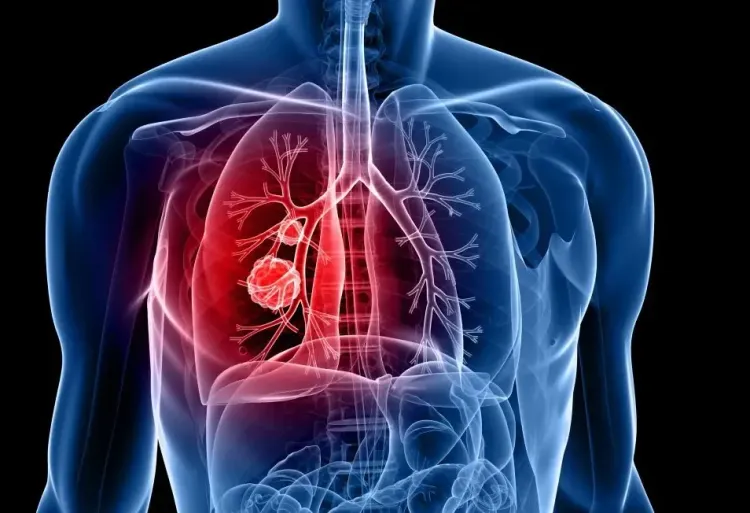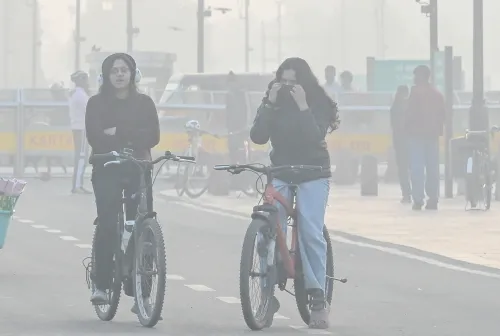Medical Professionals Alarmed by Increasing Lung Cancer Rates Among Non-Smokers in India

New Delhi, Dec 16 (NationPress) Lung cancer, traditionally linked to smokers, is witnessing a notable increase among individuals who do not smoke, health professionals reported on Monday, highlighting a worrying trend.
Health specialists attribute this change primarily to heightened exposure to air pollution.
A recent study published in The Lancet's eClinical Medicine Journal revealed that most lung cancer patients in India are non-smokers. The research also indicated that lung cancer cases in India appear approximately 10 years earlier than those observed in Western nations.
Dr. Prasad Adusumilli, a Thoracic Surgeon and Cellular Therapist at Memorial Sloan Kettering Cancer Center (MSK) in the US, stated, "India's lung cancer statistics portray a unique and alarming scenario, with an increasing number of cases among younger individuals and a rise in non-smokers. Historically, lung cancer has been closely tied to smoking, but we are observing a shift, particularly in urban demographics,” he informed IANS.
Adusumilli further noted that non-smokers, especially women, are being diagnosed with lung cancer around 10 years earlier than their counterparts in Western countries, frequently without any smoking history.
He elaborated, “This trend may be attributed to several risk factors, including exposure to environmental pollutants, genetic predisposition, and lifestyle choices.”
Lung cancer is recognized as the leading cause of cancer-related fatalities worldwide, with a rising number of cases among non-smokers, particularly women and Asian populations.
India registers approximately 75,000 new cases annually, with a troubling proportion of lung cancer patients diagnosed at advanced stages within the country.
“Lung cancer in non-smokers (LCINS) predominantly manifests as adenocarcinoma, affecting the outer regions of the lungs. Major risk factors encompass air pollution, radon exposure, indoor cooking fumes, and secondhand smoke,” explained Dr. Jagadishwar Goud Gajagowni, an oncologist at a hospital in Hyderabad.
“Environmental toxins like fine particulate matter (PM2.5) in urban settings, along with radon exposure at home, significantly elevate risk levels. Inadequate indoor air quality from using solid fuels in poorly ventilated areas also poses risks, especially in developing countries. Furthermore, passive smoking increases risks, particularly in regions with high male smoking rates,” he added.
On the treatment front, there have been remarkable advancements in lung cancer therapies. Minimally invasive surgical techniques and radiation treatments are providing patients with less invasive, more targeted options, leading to shorter recovery times and minimized side effects.
Moreover, “the emergence of targeted therapies has transformed the treatment landscape, providing more personalized and effective choices for patients based on the molecular characteristics of their tumors,” Adusumilli concluded.









